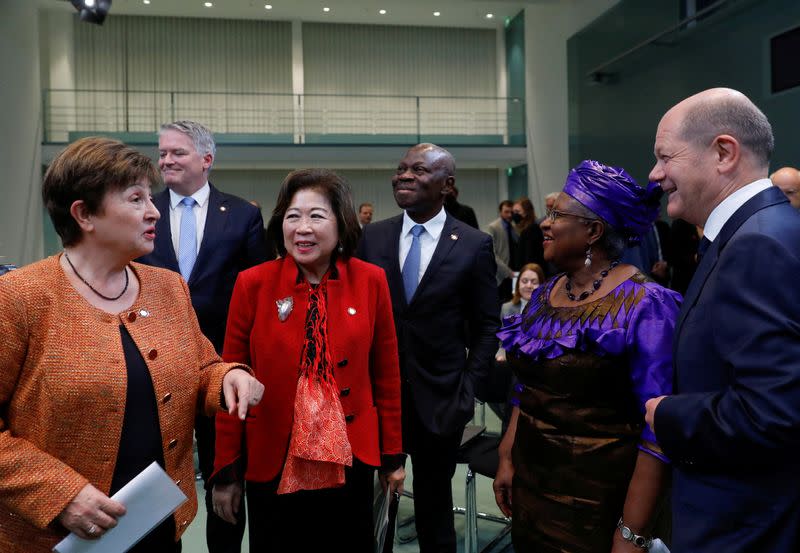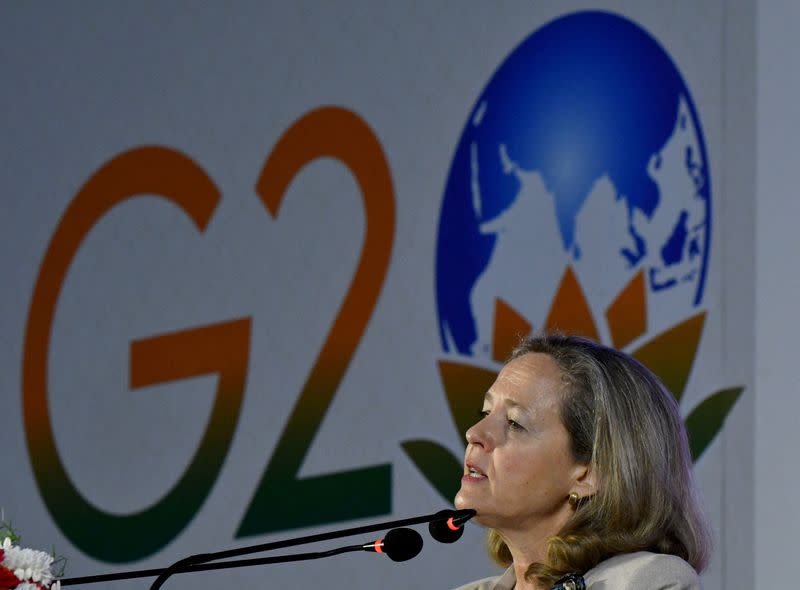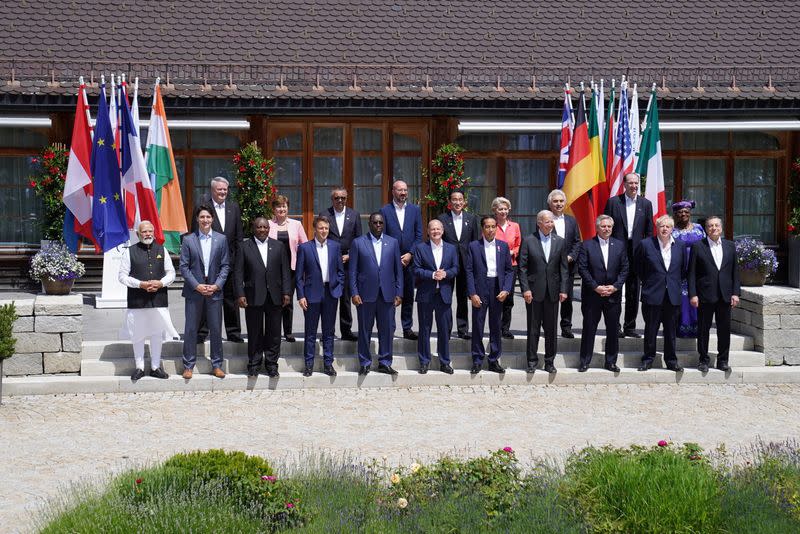By Maria Martinez
BERLIN (Reuters) - When Spanish Economy Minister Nadia Calvino found out she would be the only woman lined up for a photo call to promote the high-profile Madrid Leaders Forum last May, she walked out.
"We can no longer consider it normal that 50% of our population is not present," said Calvino, who months earlier had vowed to not attend events where she was the only woman, in protest at the lack of female representation in economics and business.
There seems to be a lot to celebrate on International Women's Day in the field of economics. Women head the International Monetary Fund, the World Trade Organization, the U.S. Treasury and the European Central Bank. However, more broadly women remain a small minority in a field that is still seen by many as being dominated by men in suits and churning out policy divorced from the real world.
"The pervasive underrepresentation of women in economics is systemic and structural," Ngozi Okonjo-Iweala, the first woman to head the World Trade Organization, told Reuters. "It is not just a matter of fairness but one of long-term global prosperity."
The Women in Economics Initiative seeks to advance gender equality in the discipline. According to its 2022 Index, women represent from 10% to 24% of the top global positions in economics, covering academia and the private and public sectors.
"There are no women in the textbooks and most big names in economics are men," said Sandra Kretschmer, economics researcher and member of the Women in Economics Initiative.
Friederike Welter is the head of the Bonn-based Institute for Small and Medium Enterprises (IfM) - the so-called "Mittelstand" sector key to Germany's export successes.
She said the lack of women in top economic roles in itself discouraged other women to choose the field as a career.
"When I became head of this institute, automatically we had way more applications from women," said Welter, who was appointed ten years ago and is now considered one of Germany's leading economists.
Janet Yellen, the first woman to head the Treasury and chair the U.S. Federal Reserve, makes frequent reference to the issue. At a banknote printing event last December she said more progress was needed.
It all starts early on. At university in both the U.S. and Germany women represent about a third of those studying economics.
The reasons are complex. Economics entails a lot of mathematics and analytical thinking and there is a cliché that men are better at those, which can make women reluctant to choose this discipline, said Katharina Wrohlich, leader of the Gender Economics research group at the German Institute DIW.




